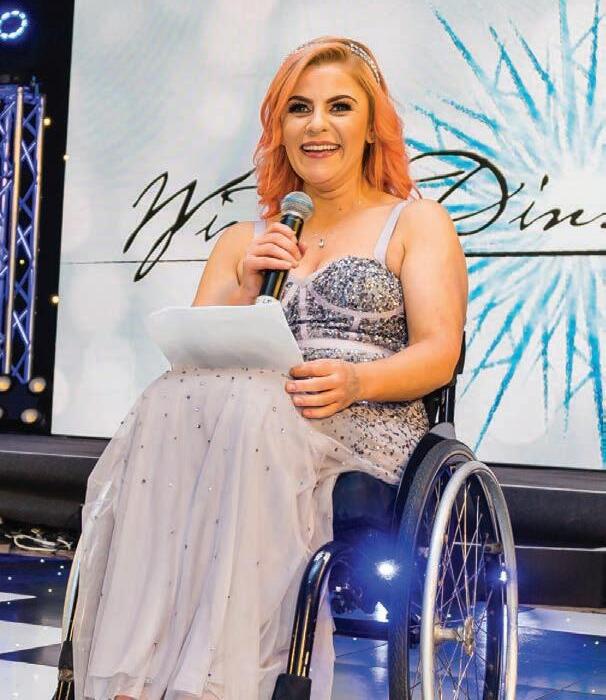
2 minute read
CALEDONIAN CRUSHERS WHEELCHAIR BASKETBALL
Introduced in 1981, wheelchair rugby, or murderball as it was first known, was created in Canada for quadriplegics. It became a Paralympic sport in 2000, and as it has progressed over the years, it has become open to people with other disabilities. To be eligible to compete, players need to have disabilities that include some loss of function in at least three out of four limbs, although it is still predominantly played by those with spinal injuries. Each team is made up of four players who are classified on their physical function from 0 to 4, and the teams can only have a maximum of eight points on the court at one time.
Played by both men and women, wheelchair rugby players can have a wide range of physical function with those who would otherwise not be able to participate in such a competitive sport. The points system ensures there is an essential role for every player regardless of their level of physical function.
Advertisement

Before 2010, the only wheelchair rugby team in Scotland was a team that trained in Falkirk which eventually folded before the formation of The Caledonian Crushers. The Crushers was the product of hard work from a dedicated few, and from the essential and considerable financial assistance from Digby Brown Solicitors.

Initially the team was coached by Dave Rhoney and Paul Black, and they would train at the then new Emirates arena and started off playing in GBWR third division. Playing in the third division, the Crushers would travel to the North of England to play in three games over a weekend. With a lot of hard work and practice, they progressed into the third division, where they would face a step up in opposition as well as playing two extra games during the competition weekends. There were some years where they struggled to keep their division three status, but with tenacity and determination, they hung in there.
Eventually, Dave left due to other commitments and some time later Michael Kerr came on board as a player and assistant coach. Michael had played with and latterly captained the National team, competed in London 2012, Rio 2016, in numerous World and European competitions as well as in the top tier of our domestic game. His buckets of experience, energy and knowledge of the game have inspired and benefited the team over the years.
Now the Crushers train at the Tollcross Leisure Centre, Glasgow, every Tuesday evening from 7 to 9pm and have cemented their place in division 2. The team are made up of a great bunch of people who get on well together and work hard, both on and off the court and support their teammates. Continually improving, they recently had their best competitive weekend, winning more than half of their games and finishing third in the table.
The benefits of participating in sport, and more so team sports, cannot be underestimated. Playing wheelchair rugby increases not only the physical wellbeing of all those involved but also the mental wellbeing, which can continue into day to day life. Becoming part of a team, players and volunteers gain a whole new circle of friends. Regularly travelling to competitions, the Crushers join up with the broader wheelchair rugby community, from officials to other teams. They are a wonderful group of people, much like one big family and a real privilege to be part of.
Many of the players initially had reservations about taking up the sport. Would they fit in? Would they like it? Were they fit enough? Was it too full-on? But after taking that first step and trying it out, any worries were dispelled. The club is always looking for new players and volunteers, and if anyone is exploring a new challenge or wishing to change their life for the better, I would encourage them to get in contact and come along and give it a go.
The Motability Scheme enables anyone in receipt of a higher rate mobility allowance to exchange that allowance for the lease of a car, scooter, powered wheelchair or Wheelchair Accessible Vehicle.









